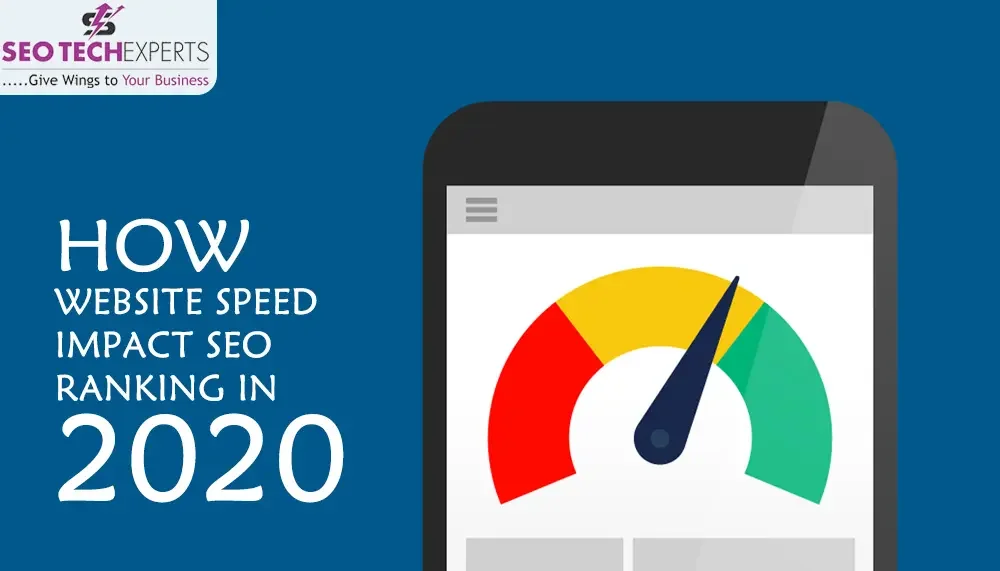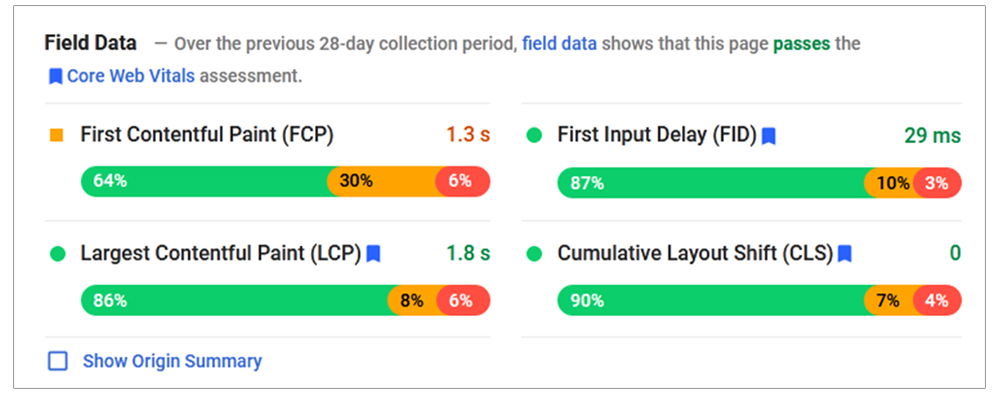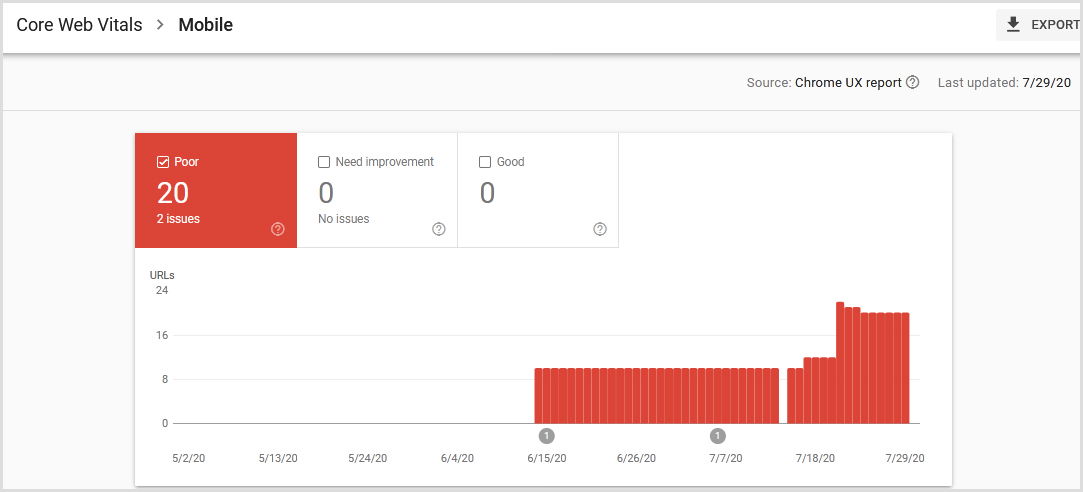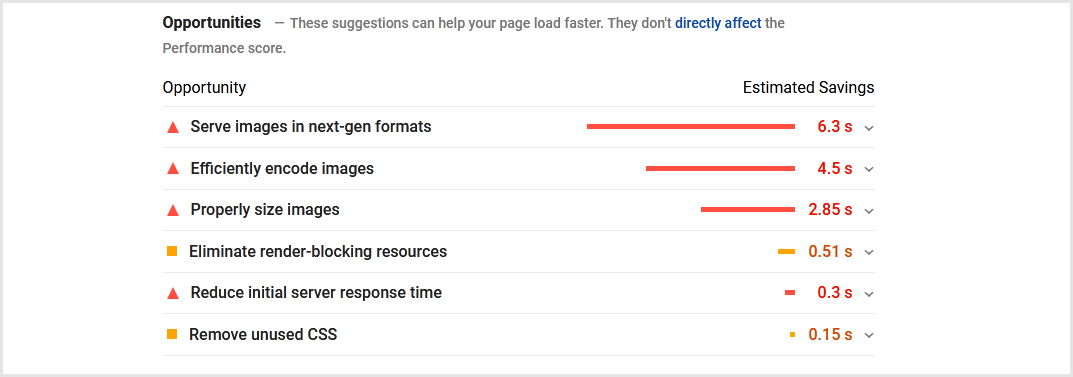How Website Speed Impact SEO Ranking

Ranking factors must be considered while developing a website to attract more traffic and to get more clicks. Not long ago it was revealed that “Speed” is one of the important ranking factors. The announcement led to major overhauls on many websites and the use of servers became more common. Like other ranking factors of SEO, speed is not to be understood in simple terms. There is always a subtlety that needs to be exploited to help make the most out of it. Through the following guide, you will be able to better understand the concept of speed and how to use it to Get a better SEO ranking.

What Is Meant By Page Speed?
Speed, here, refers to page speed and it is a measure of time taken for a webpage to load entirely. The time to load a page depends on the website’s server, the size of the page, image compression, and so forth. This is the basic definition of “Page Speed” but it can be measured in many ways:
- Fully Loaded – this justifies the basic definition of page speed. It is the time taken to fully load a page including all the resources.
- TTFB – it stands for Time to First Byte. This is the amount of time taken before the page starts loading. If you happen to click on a link, you might end up staring at a white screen before a while. This is where TTFB becomes useful.
- First Contextual Paint – here, the page has not loaded entirely but enough of its content is loaded to enable you to read the page. Sometimes, the images, audio, or files take time to load while the text appears almost quickly. It is the measure of the time taken before the end-user can interact with the website.

Does Slow Page Speed Cause A Drop In Rankings?
Yes, slow page speed can harm your SEO rankings. Among the three types of page speeds, there is no specific metric to measure their importance relative to each other. You must enhance all the types of page speeds to improve your rankings. Page speed is a recognized SEO ranking factor and therefore, its importance cannot be undermined. In a way, it indirectly could affect other ranking factors such as dwell time and bounce rate.
After the announcement to list “Page Speed” as one of the 200 ranking factors, the algorithm was subsequently updated. It is not something easily understood and therefore, websites usually try to increase all types of speed. The most common argument in support of speed is that users tend to leave the webpage if it does not load quickly. Various studies have shown if the website takes too long, usually more than 3 seconds, the end-user closes it and moves on to another. Therefore, the speed update was subsequently announced.
How Does Slow Speed Lead To Drop In Rankings?
In any marketplace, the consumer comes first. The same could be said for a search engine. The following are some of the common reasons associated with slow speed:
- Abandonment is the most noticeable cause of slow speed. Users, mostly, leave the page if it takes too long to load. As already mentioned, if the website does not start to load within 3 seconds, the end-user shifts to another.
- Customer satisfaction goes down every time the webpage takes a long to load. In the era where 5G is queued, customers demand speed and if their expectations are not met, the webpage is downgraded.
- It is also common for users to not visit a particular website if they are dissatisfied with the same. Moreover, they might tell their friends about their experience. Therefore, if your website could be advertised in a bad light if it is slow to load.
- There is a general understanding that users want the pages to load comparatively quicker in their smartphones. Considering almost everyone accesses the internet through smartphones first, it could cause a significant impact on the user’s mind.
- Delay in the loading of a webpage and the consequences that follow could cost companies. The abovementioned consequences lead to a drop in sales or pay-per-clicks. Your website could be losing money on account of slow page speed.

How To Find Out Whether Your Page Speed Is Slow Or Not?
Now that the importance of Page Speed has been proved, the next step should be to check whether your website has a good speed or not. It is, to an extent, determined by internet connectivity and therefore, only with the use of appropriate tools you can determine the true speed of your website.
One of the best tools to measure that page speed is Google PageSpeed Insights. You can simply enter the URL and get a detailed analysis of the webpage. The analysis will include the speed and user experience. Also, it provides recommendations on how to improve speed.
Other tools that are commonly employed include GTMetrix and Webpage Test. On the latter, you could choose different locations around the world to get an analysis of the page speed in that area. It is advisable to access the data with a web developer to better understand the reports and subsequently implement the recommendations.

What Are Some Of The Common Ways To Boost Page Speed?
While you can jump into the technicalities to understand how it works and improve the speed, here are some of the common ways to boost page speed:
- Enable Caching – this is the easiest and the quickest way of improving speed. Though, it only works with existing users and not first-time visitors. Cache allows the user to store some parts of the webpage on their desktop or smartphone. So when they visit the webpage again, these interactive parts would load instantly and the rest of the page will also load faster.
- Compress Images – another way of reducing loading time is to compress images. Images make up the most of a webpage. You should ensure that while you upload an image to a webpage, you reduce its size. A compressed image will load quickly and with the right tools, the compressed image will still look crisp.
- Update Server – you should spend a higher amount on web hosting services. If you happen to share the same server with multiple other websites, it will respond slowly and reduce page speed. A dedicated server will greatly increase the speed but you will have to pay a higher price.
- Clean Your Website Code – you might have bloated code on your page. Unnecessary or overlapping code is redundant and will increase the loading time. You might have unnecessary code for features you do not allow on your website. Identify and remove such code.
- Content Delivery Network – abbreviated as CDN, it identifies the server closest to the end-user. If the server is situated far off, it tends to decrease the loading time. Through CDN, the end-user is connected to the nearest host server.
Optimizing Images Could Be The Key To Better Speed
One important point to note here is that images make up most of the part of a website. Therefore, special emphasis should be given to optimizing it. While image compression is important, its quality should not be deteriorated to prove redundant. You should choose images that are suitable for functional requirements. Find the best raster format and stick to it. You could choose to use tools that automatically optimize images.
Another way of optimizing images is to choose vector images for representation. Also, you can reduce the quality of the image to a certain extent to reduce loading time. While uploading an image, you should ensure that it does not have any metadata such as geo-information. This helps reduce image size vastly.
How Does Page Speed Relate To Other Ranking Factors?
While page speed is important for SEO rankings, it does not imply that you compromise on other factors. To improve the speed, you should not reduce the content length on your webpage. According to various studies, the minimum numbers of words that are required to boost SEO rankings depend upon the type of industry. It also depends on whether you are targeting a local or international audience and the keyword phrase. Find out the bare minimum words your website should have and optimize it accordingly.
Content Freshness and Schema Markup are other related factors. Schema Markup refers to the use of keywords while Content Freshness implies uniqueness. You should aim to use specific phrases that people usually search for and also provide fresh and unique content. Even if this requires you to post images or videos, it should not stop you in the name of boosting page speed.
Page Speed Greatly Impacts Your Website Rating And SEO Ranking
Once you have used different ways of boosting page speed without compromising any other ranking factor, you should test the speed again. You can use different tools for better analysis and also follow their recommendations. Ensure to test the speed for desktop and smartphone websites to get a better idea and see where your website lacks. Like other factors, page speed should frequently be checked and improved upon. This will help you avoid unnecessary losses and boost your local or international ranking.
FAQ
Page Speed has been a factor for years but was added to the Google algorithm recently. There are many unknown factors but since now it has been openly accepted, you should pay attention to it.
Image files occupy the center of focus. They could make up to 80% of the webpage and therefore, they should be optimized. There are many ways of image optimization and most of them should be followed regardless of the page speed. Images should always be optimized while being added to a webpage.
You can use multiple tools to get a better analysis. Though, different tools focus on different aspects. If you want to focus on a local audience, the Webpage Test is more suitable while if you want a detailed analysis, Google’s speed-test tool proves better. There are many tools available to test your website speed. Identify the most suited tool to get efficient results.
Bounce Rate is one of the SEO
ranking factors. If the webpage is slow to load, users tend to navigate to another website. A higher bounce rate is bad for your ranking. By having a good page speed and offering unique and interesting content, you can have a lesser bounce rate.
Webpage content or content length should depend upon the type of industry your webpage belongs to. For instance, content length for share market or pages that give business advice should be short while the content length should be long for websites relating to legal services. These observations are a result of various studies and you should identify the right content length and improvise accordingly.